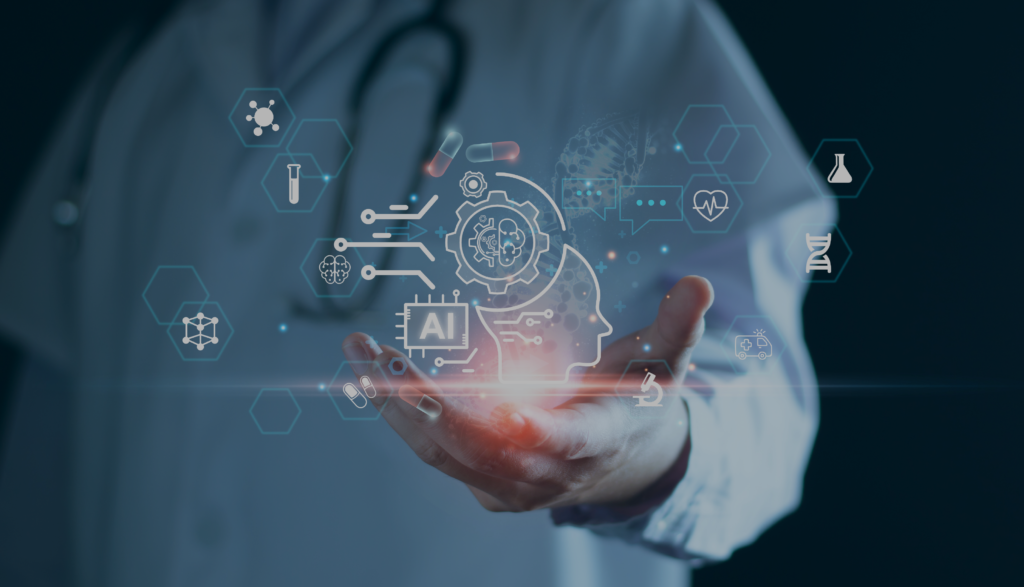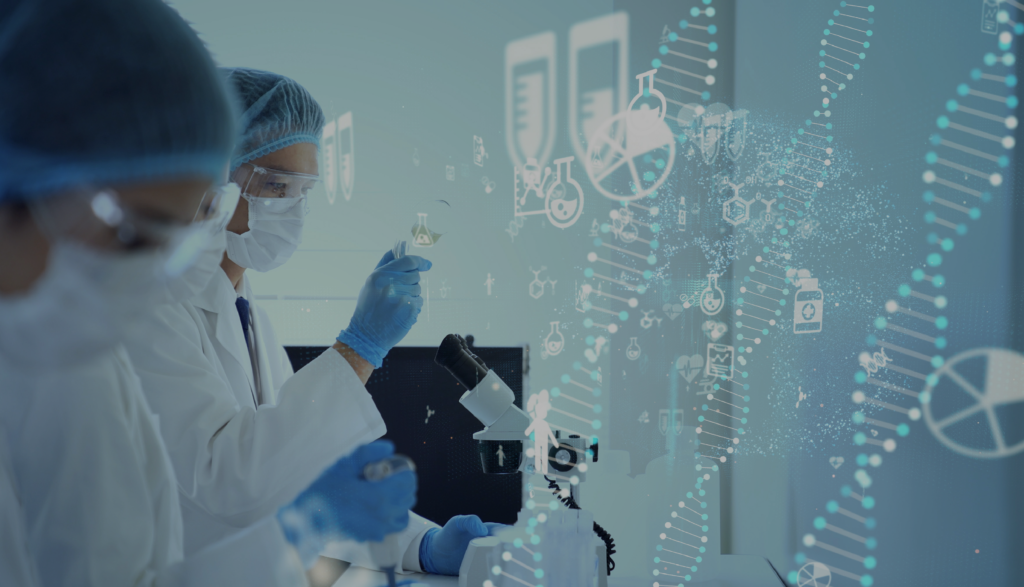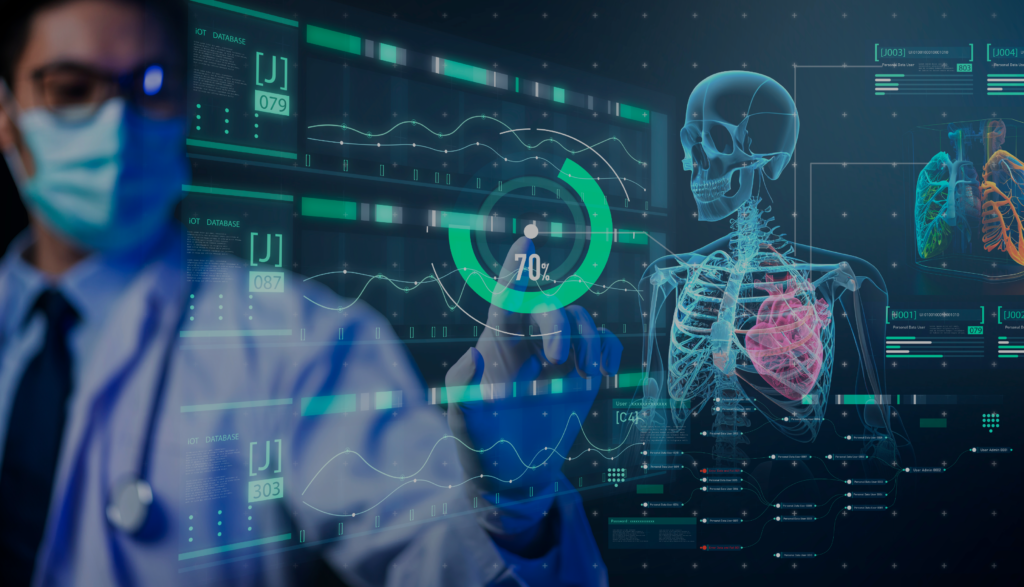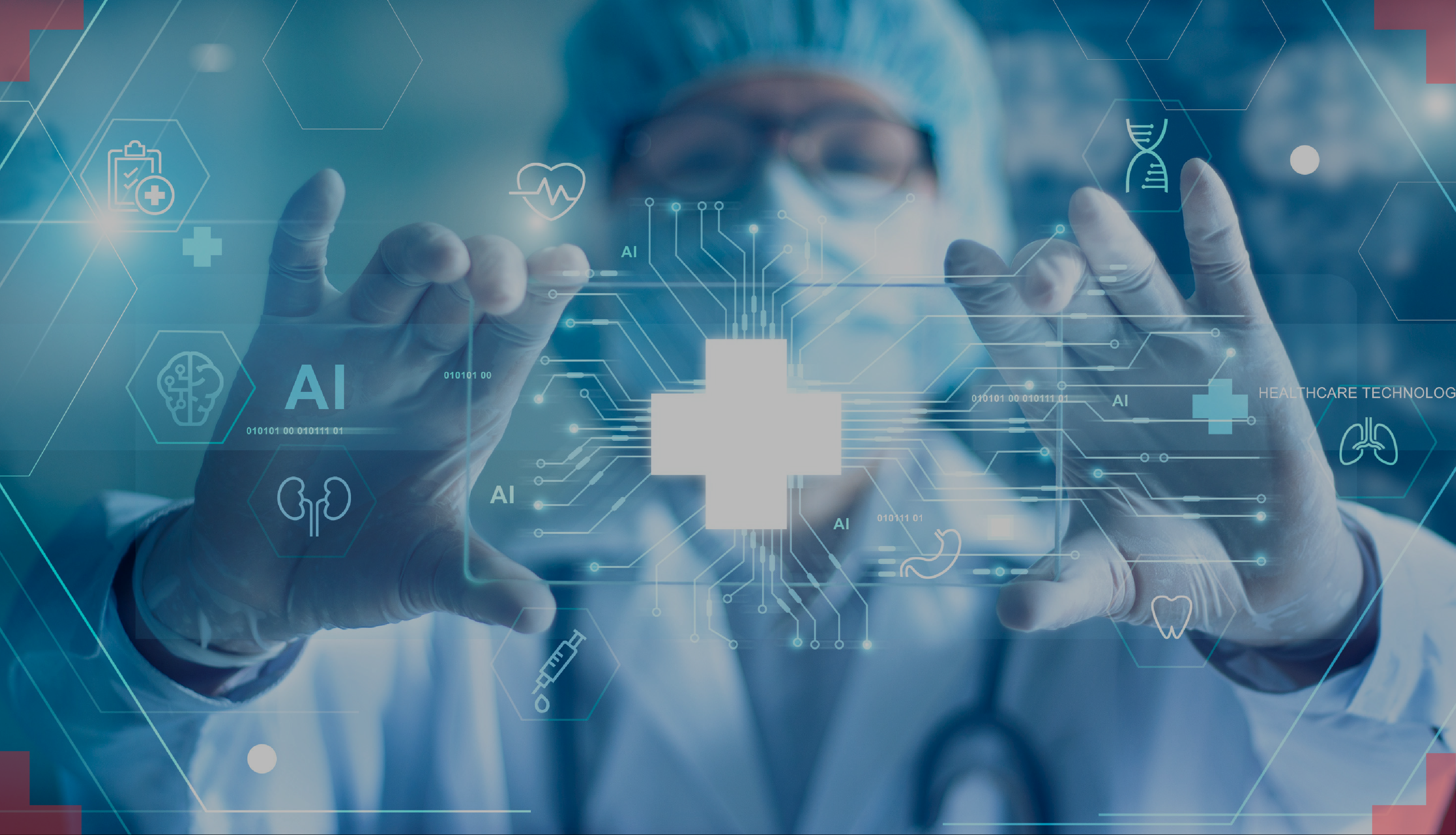AI in Healthcare: Unlocking New Possibilities for Disease Diagnosis and Treatment
- Vathslya Yedidi
- October 17, 2023
Healthcare has made massive developments and advancements in recent years, particularly in clinical research, biomedical improvement, digital technology, processes, and systems.
However, it nonetheless faces several complications, together with a lack of healthcare workers at the frontlines, an increase in health disparities between nations with various income levels, and a vast quantity of health spending that has not yielded the favored health outcomes. Artificial Intelligence (AI) has emerged as an approach to deal with these challenges, using technologies such as ML – Machine Learning and DL – Deep Learning.
From disease diagnosis to personalized treatment plans, the integration of AI-powered solutions has shown its capability to change the way healthcare works. The ability to process big volumes of information rapidly and appropriately has created new possibilities for enhancing patient care, lowering prices, and enhancing efficiency in the Healthcare system.
In this blog, we will explore How AI is Transforming Healthcare and its impact on both patients and Healthcare providers. But before that
Why is Healthcare adopting AI?
The Healthcare industry is adopting Smart AI Solutions due to a combination of factors such as a massive amount of medical data, increasing Healthcare challenges, and the capabilities of AI.

- The amount of medical information has been increasing rapidly over the past decade. According to a report from the WEF – World Economic Forum, Global Healthcare Data is predicted to go beyond 10 zettabytes by 2025. Healthcare providers are overwhelmed by the volume of patient data available. Technology companies are developing new datasets to aid decision-making using this abundant data.
- The COVID-19 pandemic has worsened pre-existing Healthcare challenges, such as a shortage of frontline Healthcare workers and financial difficulties faced by hospitals and National Healthcare Systems. WHO estimates that there will be a Global Deficit of 10 million healthcare workers by the year 2030.
- Deep Learning is an algorithm trained on extensive datasets that holds the potential to transform the field of healthcare. It can accurately predict a wide range of healthcare aspects, including human biology, behavior, and language. However, it is crucial to acknowledge that AI alone cannot provide a comprehensive solution to Healthcare issues, as some challenges require the use of advanced analytics techniques.
Exploring AI's Diverse Applications in the Healthcare Sector:
1. Early Disease Detection and Diagnosis
Early Disease Diagnosis is crucial for saving patients. AI algorithms have changed the field of medical imaging, leading to faster and more accurate analysis of X-rays, MRIs, & CT scans. This advancement significantly reduces the time needed for diagnosis & minimizes the risk of incorrect diagnoses.
For instance, the early detection of pancreatic cancer, typically associated with a low survival rate, can be greatly enhanced with the help of AI-based tools like those developed by Cedars-Sinai and Siemens Healthineers. This technology contributes to improved early detection and better patient outcomes.

AI is also being used to prevent events like strokes and asthma attacks by assessing a patient’s risk and suggesting interventions. Deep Learning techniques are being employed to diagnose depression more effectively. In addition, algorithms are being trained to identify early signs of chronic diseases for prevention purposes, including considering environmental factors and climate change.
2. Personalized Treatment Plans
AI plays a vital role in customizing treatment plans for patients by analyzing their medical history, genetic analysis, and lifestyle data. This approach enhances treatment outcomes while minimizing side effects, resulting in improved personalized care.
For instance, in cancer treatment, AI helps identify the most effective therapy combination based on the patient’s unique genetic profile and tumor characteristics. This enhances the chances of successful treatment and reduces adverse effects.
3. Remote Monitoring and Telemedicine
Remote Monitoring and Telemedicine have become more prominent, particularly during the COVID-19 pandemic. AI plays a critical role in these Intelligent Healthcare Solutions by facilitating the continuous monitoring of patient’s vital signs and health metrics from the comfort of their own homes.

Individuals suffering from chronic conditions such as diabetes or hypertension can use wearable devices with embedded AI algorithms to track their well-being and receive immediate feedback. Healthcare providers can remotely supervise their patients and step in whenever necessary, reducing the need for frequent in-person appointments and hospitalizations.
4. Infectious Disease Intelligence:
The COVID-19 pandemic has had a highly negative impact on Global Health. The International Monetary Fund forecasts that Global Economy will cost $12.5 trillion through 2024. Pandemics strain Healthcare Systems and lead to increased illness and death. Governments have invested heavily in predicting infectious diseases to better allocate public health resources. National Health Systems (NHS) have made progress in standardizing diagnosis reporting, but accuracy and transparency vary. Disease monitoring should anticipate and guide institutions on the best way to act quickly. AI can serve as an early warning system to complement traditional forecasting methods and predict climate-related health risks.
5. Virtual Health Assistants
Virtual Health Assistants, such as smart chatbots, offer convenient and accessible Healthcare solutions. They assist patients by giving information, booking appointments, and providing medical advice based on their symptoms and medical history. These assistants are accessible 24/7, benefiting patients in remote or underserved areas by improving healthcare accessibility and reducing the workload on healthcare providers.
6. Drug Discovery and Development
The process of drug discovery and development has a long and expensive reputation. However, AI is expediting this process by analyzing vast amounts of data to efficiently identify potential drug candidates. Machine Learning algorithms can forecast the therapeutic potential of chemical compounds, reducing the necessity for extensive laboratory testing.

AI can analyze clinical trial data to identify patient groups that would benefit most from a specific medication. This leads to more focused and cost-efficient trials, resulting in faster development of new treatments and reduced overall expenses.
Conclusion:
The integration of AI in Healthcare is scaling smart solutions that benefit both patients and healthcare providers. While the potential of AI in healthcare is immense, it also comes with ethical and privacy concerns. Protecting patient data and ensuring the responsible use of AI in healthcare are critical challenges. Healthcare providers and AI developers must adhere to strict Data Security and Privacy Regulations to maintain patient trust. With AI continuing to progress, the Healthcare sector is primed for further transformative changes in the future years.
Ready to leverage the capabilities of AI for smarter Healthcare solutions? Get in touch with us now to discover how AI can change healthcare practices and enhance patient care.

